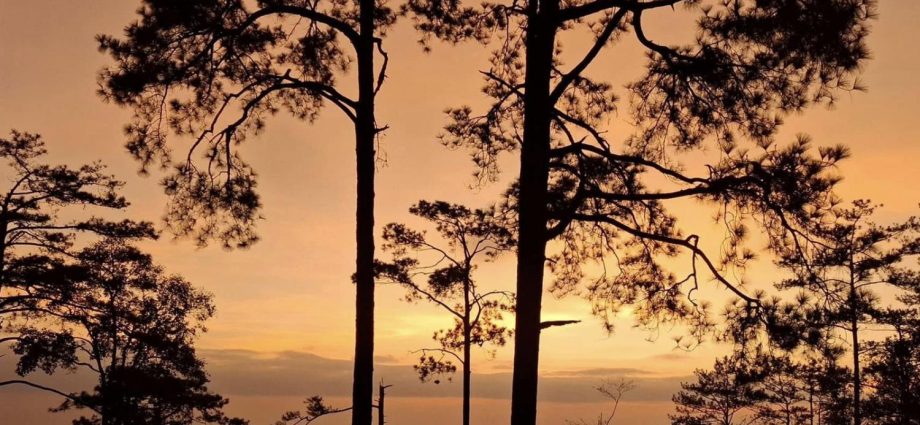Locals look forward to visitor earnings, but activists are still sceptical, writes Apinya Wipatayotin
PUBLISHED : 17 May 2025 at 05:34
NEWSPAPER SECTION: News

The long-debated cable car project in Phu Kradueng National Park, Loei province, has once again come under public scrutiny, raising concerns about its alignment with sustainable development goals.
Critics argue the project reflects a broader pattern of government-backed megaprojects that risk exploiting natural resources in the name of tourism development.
The issue resurfaced late last month after the Department of National Parks, Wildlife and Plant Conservation (DNP) granted a two-year extension for a feasibility study of a proposed cable car.
This followed the Budget Bureau’s approval of a 25.7-million-baht allocation for the Designated Areas for Sustainable Tourism Administration (Dasta) to proceed with the project’s design phase.
Lengthy history
The Phu Kradueng cable car project was first proposed in 1982. Since then, multiple feasibility studies have been conducted by academic and private agencies.
In 2004, the government under then prime minister, Thaksin Shinawatra, asked Dasta to conduct a comprehensive feasibility study, identifying a potential route and submitting recommendations to the cabinet.
Renewed interest emerged in 2012 when cabinet directed the Ministry of Natural Resources and Environment and Dasta to revisit the project.
However, progress stalled due to widespread opposition from environmentalists, who raised concerns about the threat of overtourism and its impact on the park’s fragile ecosystem.
Momentum returned again in 2023, when the government under Srettha Thavisin included the project in a strategic plan for sustainable tourism in designated areas.
This year, the government, led by Prime Minister Paetongtarn Shinawatra, approved a 25.7-million-baht budget for project design and study.
Still under study
Attapol Charoenchansa, director-general of the DNP, on May 5 said the cable car remains in the study phase and has not been approved. He acknowledged the park’s financial constraints, noting that despite a substantial management budget, it generates relatively low revenue. In fiscal year 2024, Phu Kradueng welcomed 66,943 visitors, earning just 13.7 million baht.
Mr Attapol said increasing revenue through alternative means — including the cable car — is under consideration.
He said modern construction methods can minimise land use and environmental impact. Technology proposals have been received, mainly from European countries such as Switzerland, the Netherlands, Norway, Sweden, and Germany.
A potential station site has also been identified at Pha Mak Dook cliff, away from the current main trailhead. The proposed route would be no longer than three kilometres, he said.
Impact concerns
Designated as an Asean Heritage Park in October 2023, Phu Kradueng is known for its distinctive mesa landscape and diverse endemic plant species, making it a haven for botanists and nature enthusiasts.
Environmental advocates warn that even if the forest remains mostly undisturbed by a cable car, the project would permanently change the 4.4-kilometre hiking trail to the summit — a route celebrated as one of Thailand’s finest.
The DNP also plans broader improvements within a 10-kilometre radius of the park. These include road upgrades, a shuttle bus system, learning centres, and new visitor facilities.
Officials said cable cars could enhance accessibility for day-trippers and alleviate pressure on the park’s limited overnight accommodation.
Mr Attapol said public opposition to the project has fallen, and many residents now support it, motivated by expectations of increased tourism income.
Despite growing local support, conservationists remain sceptical. They question whether the cable car’s convenience justifies the potential loss of the park’s natural charm.
Additionally, they warn that the anticipated economic benefits for surrounding communities may not materialise if the project fails to meet sustainability benchmarks.
Most critically, the estimated one-billion-baht investment cost may not deliver adequate returns.
With a lengthy payback period and significant long-term maintenance costs, critics warn that the cable car could become more of a financial burden than a boon to national park management.

